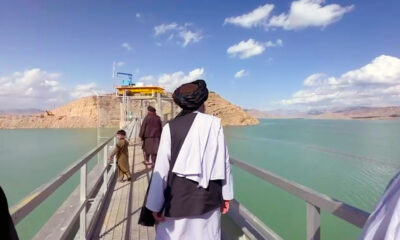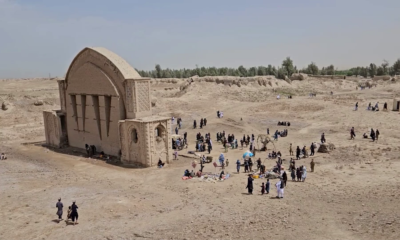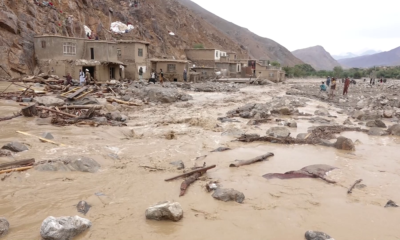Climate Change
More flooding feared as lake in southern Pakistan swells

Officials have warned that more flooding was expected as Lake Manchar in southern Pakistan swelled from unprecedented monsoon rains that have left 1,300 people dead since mid-June and have killed nearly 1,300 people.
Fariduddin Mustafa, administrator for the Jamshoro district, said on Sunday that officials made a cut into the lake’s embankment to allow excess water to escape and ultimately flow into the Indus, Associated Press reported. Still, the water continues to rise, he said.
Parts of Dadu district have already been flooded, officials said.
″After we assessed water levels reached (a) dangerous level … and there was fear that the embankment of the lake might be caved in at any time, the administration decided to make a cut on the Bagh-e-Yousuf side to avert any uncontrollable flow of water,” he said.
Meteorologists predicted more rain in the region in the coming days and authorities urged villagers in the Jamshoro and Dadu districts of Sindh province near the lake to evacuate.
The rising waters reached dangerous levels and posed a threat to a protective dyke and embankment, they said.
The lake, located west of the Indus River, is the largest natural freshwater lake in Pakistan and one of the largest in Asia.
The development comes a day after Pakistan appealed again to the international community for aid to victims of the unprecedented flooding from monsoon rains that have left nearly 1,300 people dead and millions homeless around the country.
Planes from multiple countries have been bringing supplies to the impoverished country across a humanitarian air bridge.
Multiple officials and experts have blamed the unusual monsoon rains and flooding on climate change, including UN Secretary-General Antonio Guterres, who last week called on the world to stop “sleepwalking” through the deadly crisis.
He will visit Pakistan on September 9 to tour flood-hit areas and meet with officials.
Climate Change
UN sounds ‘Red Alert’ as world smashes heat records in 2023
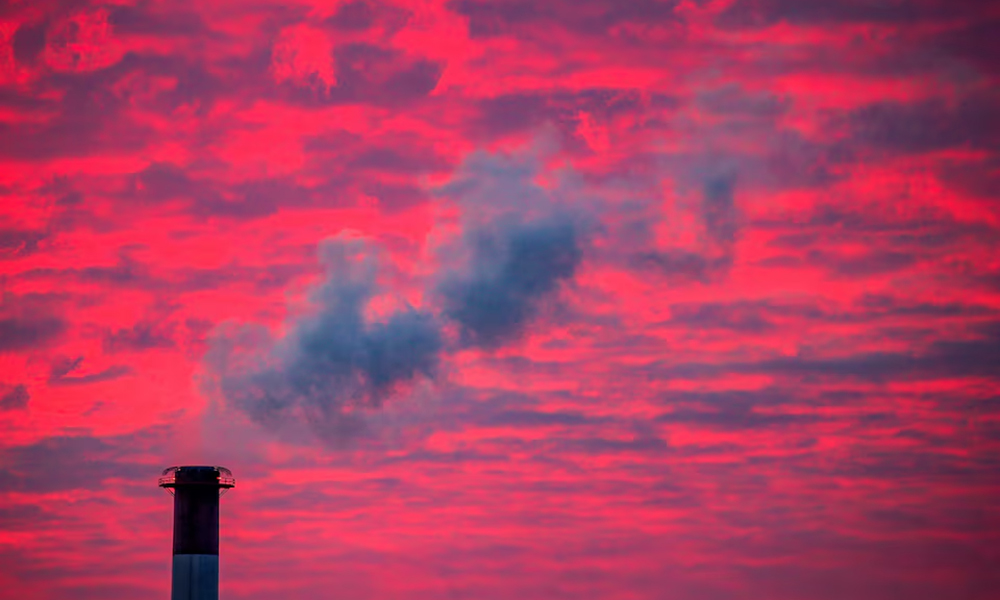
Every major global climate record was broken last year and 2024 could be worse, the World Meteorological Organization (WMO) said on Tuesday, with its chief voicing particular concern about ocean heat and shrinking sea ice, Reuters reported.
The U.N. weather agency said in its annual State of the Global Climate report that average temperatures hit the highest level in 174 years of record-keeping by a clear margin, reaching 1.45 degrees Celsius above pre-industrial levels.
Ocean temperatures also reached the warmest in 65 years of data with over 90% of the seas having experienced heatwave conditions during the year, the WMO said, harming food systems.
“The WMO community is sounding the Red Alert to the world,” said WMO Secretary-General Celeste Saulo, who took over the job in January.
“What we witnessed in 2023, especially with the unprecedented ocean warmth, glacier retreat and Antarctic sea ice loss, is cause for particular concern.”
She later told reporters that ocean heat was particularly concerning because it was “almost irreversible”, possibly taking millennia to reverse.
“The trend is really very worrying and that is because of the characteristics of water that keep heat content for longer than the atmosphere,” she said.
Climate change, driven by the burning of fossil fuels, coupled with the emergence of the natural El Nino climate pattern, pushed the world into record territory in 2023, read the report.
WMO’s head of climate monitoring, Omar Baddour, told reporters there was a “high probability” that 2024 would set new heat records, saying that the year after an El Nino was typically warmer still.
Tuesday’s report showed a big plunge in Antarctic sea ice, with the peak level measured at 1 million km2 below the previous record – an area roughly equivalent to the size of Egypt.
That trend, combined with ocean warming which causes water to expand, has contributed to a more than doubling of the rate of sea-level rise over the past decade compared with the 1993-2002 period, it said.
Ocean heat was concentrated in the North Atlantic with temperatures an average 3 degrees Celsius above average in late 2023, the report said. Warmer ocean temperatures affect delicate marine ecosystems and many fish species have fled north from this area seeking cooler temperatures, Reuters reported.
Saulo, a meteorologist from Argentina who has promised to strengthen global warning systems for climate disasters, said she hoped the report would raise awareness of the “vital need to scale up the urgency and ambition of climate action”.
“That’s why we spoke about the Red Alert because we must care for the people and how they will suffer from these more frequent, more extreme events,” she told reporters. “If we do nothing, things will become worse and that will be our responsibility.”
Climate Change
Pakistan, India and Bangladesh bottom in air quality rankings in 2023

Pakistan remained one of the world’s three smoggiest countries in 2023, as Bangladesh and India replaced Chad and Iran, with particulate matter about 15 times the level recommended by the World Health Organization, data published on Tuesday showed.
Average concentrations of PM2.5 – small airborne particles that damage the lungs – reached 79.9 micrograms per cubic meter in Bangladesh in 2023, and 73.7 micrograms in Pakistan. The WHO recommends no more than 5 micrograms.
“Because of the climate conditions and the geography (in South Asia), you get this streak of PM2.5 concentrations that just skyrocket because the pollution has nowhere to go,” said Christi Chester Schroeder, air quality science manager at IQAir, a Swiss air-monitoring organisation.
“On top of that are factors such as agricultural practices, industry and population density,” she added. “Unfortunately, it really does look like it will get worse before it gets better.”
In 2022, Bangladesh was ranked as having the fifth-worst air quality, and India was eighth.
About 20% of premature deaths in Bangladesh are attributed to air pollution, and related healthcare costs amount to 4%-5% of the country’s GDP, said Md Firoz Khan, an air pollution expert at Dhaka’s North South University.
Indian pollution also increased last year, with PM2.5 levels about 11 times higher than the WHO standard. India’s New Delhi was the worst-performing capital city, at 92.7 micrograms.
Only Australia, Estonia, Finland, Grenada, Iceland, Mauritius and New Zealand met WHO standards in 2023.
The IQAir report was based on data from more than 30,000 monitoring stations in 134 countries and regions.
Chad, the world’s most polluted country in 2022, was excluded from the 2023 listings because of data issues. Iran and Sudan were also taken off the 2023 list.
Afghanistan was meanwhile not included on the list.
Climate Change
In Bolivia, heavy rains prompt authorities to declare state of emergency
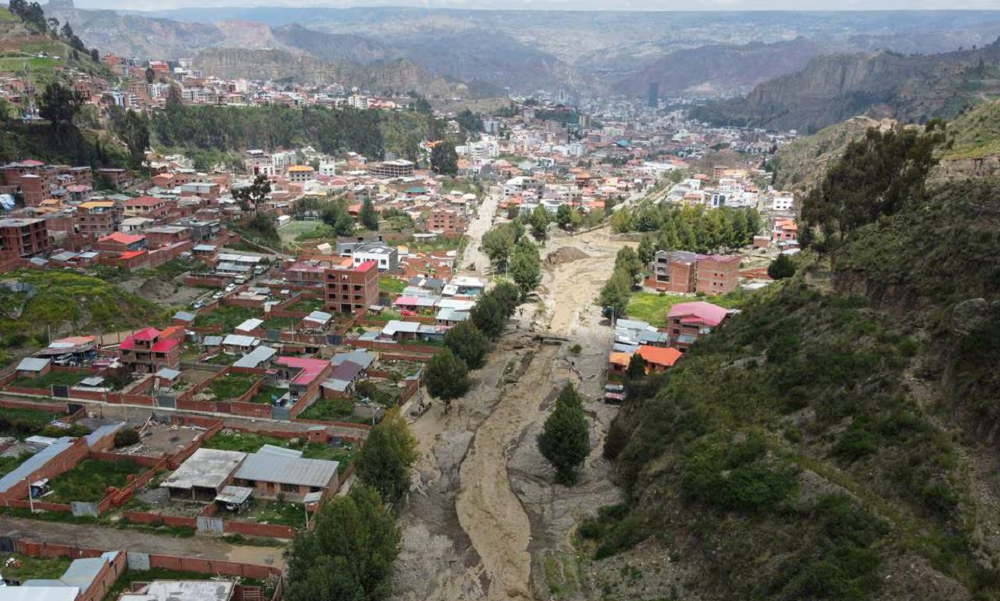
Heavy rain in Bolivia’s capital, La Paz, prompted authorities to declare a state of emergency, a government document showed on Sunday, after overflowing rivers destroyed many houses over the weekend.
Bolivian President Luis Arce pledged to send heavy machinery and 3,000 troops to prevent further damage, according to the document, Reuters reported.
Heavy rains caused flooding in several neighborhoods and isolated parts of the city by cutting water, electricity and roads.
“We are deeply concerned by the difficult situation that our municipality in La Paz is going through,” Arce said in a post on social media platform X.
One person died over the weekend in La Paz because of the heavy rains, while nearly 50 people have died in deluges across the country since the rainy season began in January, according to official data.
-

 5 days ago
5 days agoSaar: Concerns over drug trafficking from Afghanistan discussed
-

 Tahawol5 days ago
Tahawol5 days agoTahawol: Concerns over continuation of acting government discussed
-

 Regional3 days ago
Regional3 days agoIndian foreign ministry advises against travel to Iran, Israel
-
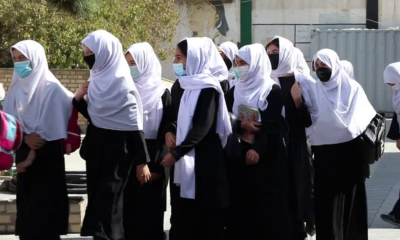
 Latest News5 days ago
Latest News5 days agoBanning girls’ education has caused economic issues: private school officials
-

 Latest News4 days ago
Latest News4 days agoAfghanistan withdrawal probe sparks anxiety within Biden administration: US’s McCaul
-

 Latest News3 days ago
Latest News3 days agoTop former US general claims Daesh-Khorasan is ‘on the upswing’
-

 Latest News3 days ago
Latest News3 days agoLightning strikes in Helmand kill one, injure three
-
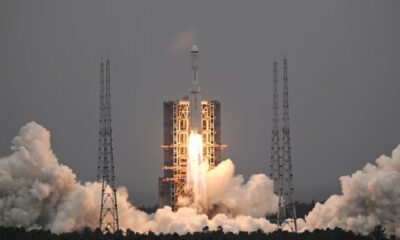
 Science & Technology4 days ago
Science & Technology4 days agoChina launch of relay satellite Queqiao-2 for lunar probe mission successful


